Unveiling 10 Skincare Myths: The Truth Behind Healthy, Glowing Skin! Dive into this myth-busting guide for radiant skin
In the bustling world of skincare, where Instagram influencers and beauty gurus reign
supreme, it's easy to get lost in a sea of misinformation. From miracle cures to overnight transformations, the internet is rife with skincare myths that can do more harm than good.
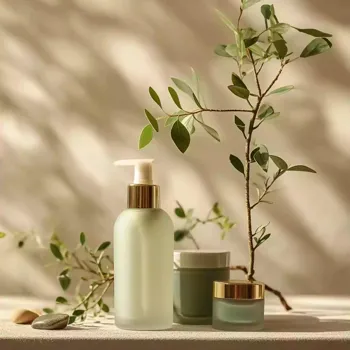
So, let's cut through the noise and debunk 10 common skincare myths, revealing the truth behind achieving healthy, glowing skin, the Indian way.
Clouds don't shield from UV rays; sunscreen is vital daily
This is a big one, folks! Many think the sun's rays are only harmful when the sun is prominently visible. But even on overcast days, harmful UV rays are very much present and can penetrate clouds, causing skin damage, premature aging, and increasing the risk of skin cancer.
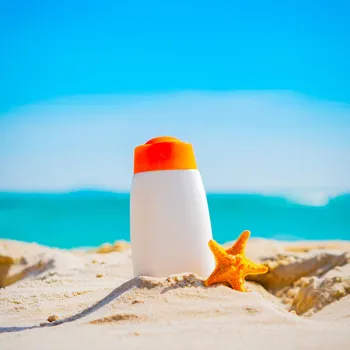
Think of it like this, even when you can't see the sun, the radiation that harms the skin is still present. Therefore, rain and clouds can weaken direct sunlight, but they will not shield your skin from ultra-violet (UV) radiation.
A broad-spectrum sunscreen with at least SPF 30 should be a daily essential, regardless of the weather. Apply it generously 15-20 minutes before stepping outside, and reapply every two hours, especially if you're sweating or swimming.
Remember, protecting your skin from the sun is the single most important thing you can do for its long-term health and beauty.
Debunking myth: Moisturizing oily skin prevents excess oil
This is a common misconception that can leave oily skin feeling unbalanced and even more prone to breakouts. While it may seem counterintuitive, depriving oily skin of moisture can actually trigger the skin to produce even more oil, leading to a vicious cycle of greasiness and clogged pores.
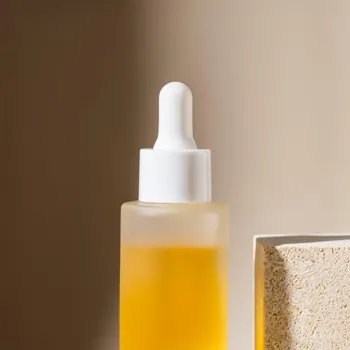
The key is to choose a lightweight, oil-free, and non-comedogenic moisturizer that hydrates the skin without clogging pores. Look for ingredients like hyaluronic acid, which draws moisture from the air and keeps the skin hydrated without adding extra oil.
A good moisturizer helps to maintain the skin's barrier function, preventing dryness and irritation, even on oily skin. So, don’t be afraid to moisturise! It can help hydrate your skin.
High SPF not crucial; proper application key for sunscreen effectiveness
While a high SPF number may seem like the ultimate protection, the difference in protection between SPF 30 and SPF 50 is actually quite minimal. SPF 30 blocks about 97% of UVB rays, while SPF 50 blocks about 98%. The key is not just the SPF number, but also the proper application.
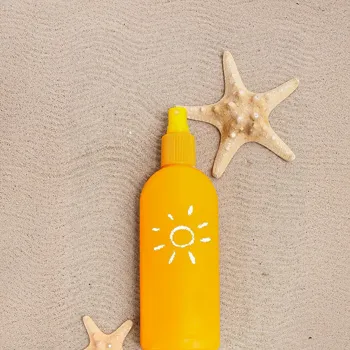
Most people don't apply enough sunscreen, so even a high SPF won't be effective if you're skimping on the amount. Also, remember to reapply sunscreen every two hours, regardless of the SPF number, to maintain adequate protection. Applying the right way is more important than just having a high SPF.
Not all natural skincare products are safe or effective
The term "natural" can be misleading in the world of skincare. Just because a product is labeled as natural doesn't automatically mean it's safe or effective. Many natural ingredients can be irritating or allergenic for some people.
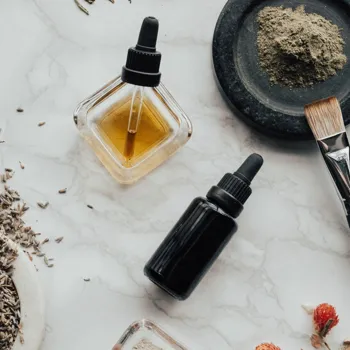
For example, essential oils, while popular for their fragrance and potential benefits, can cause allergic reactions and sensitivity in some individuals. Similarly, some plant extracts can be comedogenic, meaning they can clog pores and lead to breakouts.
It's always important to do a patch test before using any new product, especially if you have sensitive skin.
A patch test involves applying a small amount of the product to a discreet area of your skin, such as behind the ear or on the inner arm, and waiting 24-48 hours to see if any irritation occurs.
Affordable skincare can be as effective as high-end; focus on active ingredients for results
Price doesn't always equate to quality when it comes to skincare. Many affordable skincare products contain the same active ingredients as their high-end counterparts and can be just as effective.
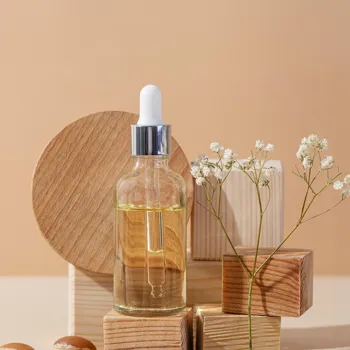
The key is to look at the ingredient list and choose products that contain ingredients that are known to be beneficial for your skin type and concerns. For example, if you're looking for an anti-aging serum, look for ingredients like retinol, vitamin C, and peptides, regardless of the price tag.
Also, remember that consistency is key when it comes to skincare. Even the most expensive product won't work if you don't use it regularly.
Tanning beds emit harmful UVA, opt for safe alternatives
Absolutely not! Tanning beds are actually more dangerous than the sun because they emit concentrated doses of UVA radiation, which is known to cause premature aging and skin cancer. There is no safe way to tan, whether it's from the sun or a tanning bed.
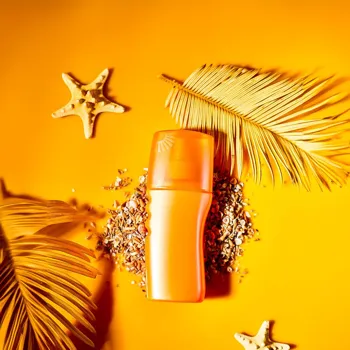
If you want a sun-kissed glow, opt for a self-tanner or a tinted moisturizer instead. These products can give you a natural-looking tan without the harmful effects of UV radiation. Remember, your skin's health is far more important than a tan! Keep yourself safe.
Genetics determine pore size, but clean skin reduces appearance
Unfortunately, pore size is largely determined by genetics and cannot be permanently changed. While you can't shrink your pores, you can minimize their appearance by keeping them clean and unclogged.
Regular exfoliation can help remove dead skin cells and debris that can accumulate in pores, making them appear larger. Using non-comedogenic skincare products can also help prevent pores from becoming clogged.
Ingredients like salicylic acid can penetrate pores and break down oil and debris, making them less noticeable.
Toothpaste can harm skin when applied on pimples
This is an old wives' tale that can actually do more harm than good. While toothpaste contains ingredients like baking soda and hydrogen peroxide that have drying properties, they can also be extremely irritating to the skin.
Applying toothpaste to a pimple can dry it out initially, but it can also cause redness, inflammation, and even chemical burns. There are much gentler and more effective acne treatments available, such as benzoyl peroxide and salicylic acid, which are specifically formulated for acne-prone skin.
Simple skincare routine is better than overloading with products
More isn't always better when it comes to skincare. Overloading your skin with too many products can actually lead to irritation, sensitivity, and breakouts. A simple, consistent skincare routine that focuses on the basics is often more effective than a complicated, multi-step routine.
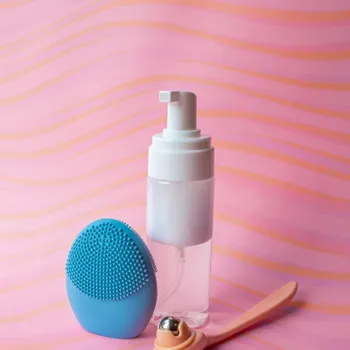
A basic skincare routine should include cleansing, moisturizing, and sun protection. You can then add targeted treatments, such as serums and masks, based on your specific skin concerns.
Skin needs change with age, update skincare routine for better results
Just as our bodies and our needs change with age, so too do our skin and our skin needs. Using the same skincare routine for years can actually make your skin worse. Consider new environmental exposures, stress, and of course, age, as you choose a new skincare routine.
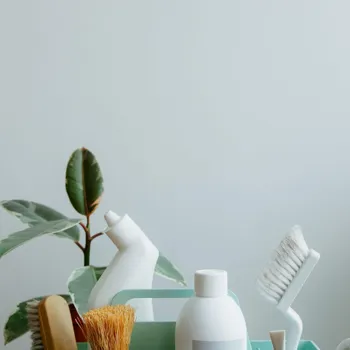
Talk to a dermatologist if you're not sure what kind of product is best for you, or to get recommendations for products that can help treat any specific problems.
10 skincare myths debunked for healthy, glowing skin
So, there you have it – 10 common skincare myths debunked! Remember, the key to healthy, glowing skin is to do your research, listen to your skin, and choose products and practices that are right for you. Don't fall for the hype and misinformation that's so prevalent in the beauty world.
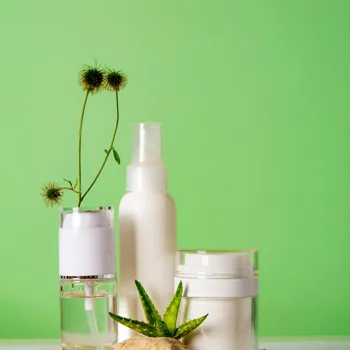
With a little knowledge and patience, you can achieve the skin of your dreams, the Indian way.
AI Generated Content. Glance/InMobi shall have no liability for the content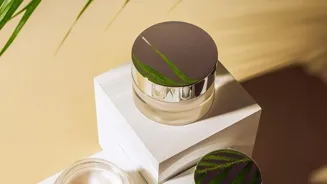
![[WATCH] 'Real Madrid, Ramadan and rest' - Mohammed Siraj how last-minute World Cup call-up changed February plan](https://g-mob.glance-cdn.com/public/fc/image/ByYT_LEmlrD0.webp)












